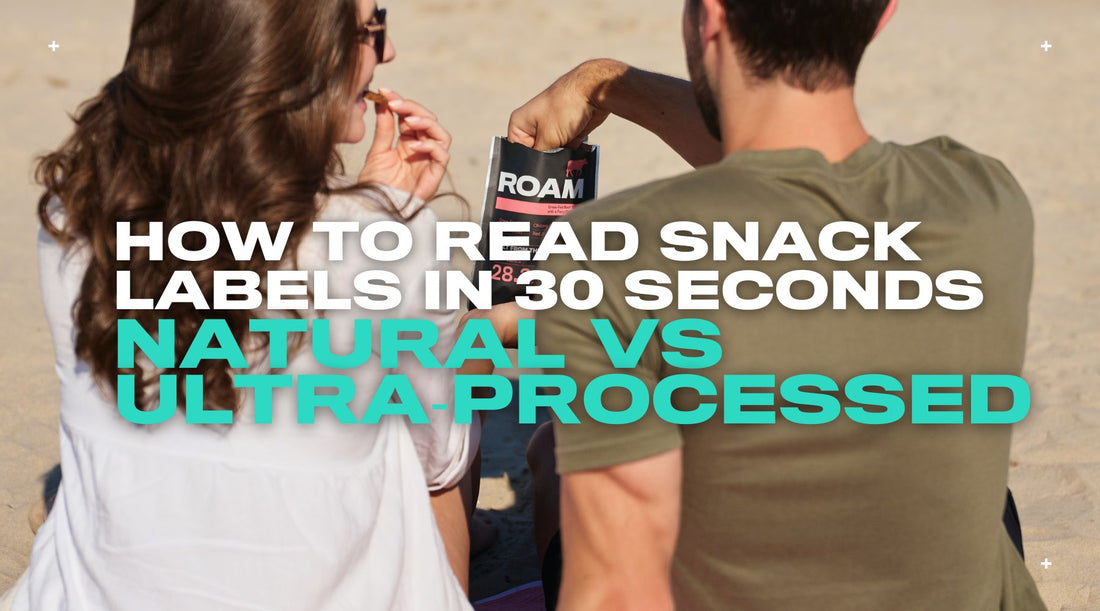
Natural vs Ultra‑Processed: How to Read Snack Labels in 30 Seconds
If the label needs a dictionary (or worse, a scientist to decode it) - it’s probably not food.
UK snack aisles are packed with “healthy” bars hiding ultra‑processed ingredients: seed oils, sugar alcohols, emulsifiers, flavours. This guide gives you a rapid system to spot natural foods that support real performance, and avoid the rest.
Read a food label in 30 seconds
-
Ingredients
- ≤10 and recognisable.
- You shouldn't need a dictionary or a scientist to decipher the ingredients.
-
Protein source
- Whole foods (beef, eggs, dairy) rather than just isolates.
- Whey/pea/hemp isolates aren't bad, and are great for quick fixes on the go, but use sparingly.
- No seed oils (sunflower/rapeseed/soybean), no gums (xanthan/guar), no polyols (maltitol/erythritol).
-
Sugar
- ≤5–6g per serving;
- Avoid artificial sweeteners where possible.
-
Calories‑to‑protein
- ≤10:1 calories should come from complex sources like protein, carbohydrates or fats, not fillers, gums & sugars.
Read more in‑depth: The Power of Real Food →
Related deep dive: What’s the Healthiest Protein Bar in the UK? →

Why this matters (beyond macros)
Gut stability: Emulsifiers and polyols can cause bloating—bad news before training/meetings.
Inflammation: Seed oils and additives can increase inflammatory load and fatigue.
Satiety: Whole‑food proteins are more satiating and micronutrient‑dense.
Related deep dive: 7 Foods to improve gut health →
Real‑world swaps
- Granola bar → Roam bar (18–20g protein, ~166 kcal, zero sugar).
- Protein cookie → Greek yoghurt + berries.
- Flavoured crisps → Roasted chickpeas/edamame.
The Roam difference
- 100% grass‑fed EU beef (Germany & Netherlands)
- Zero sugar, zero seed oils, no gums
- 18–20g complete protein per bar; 12–14g per bite pouch
